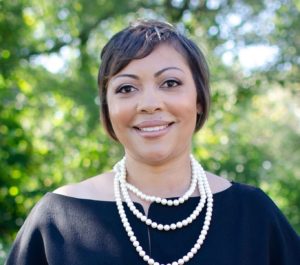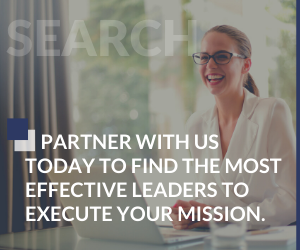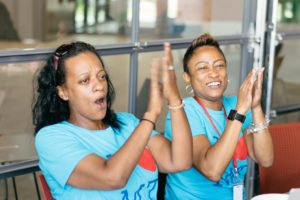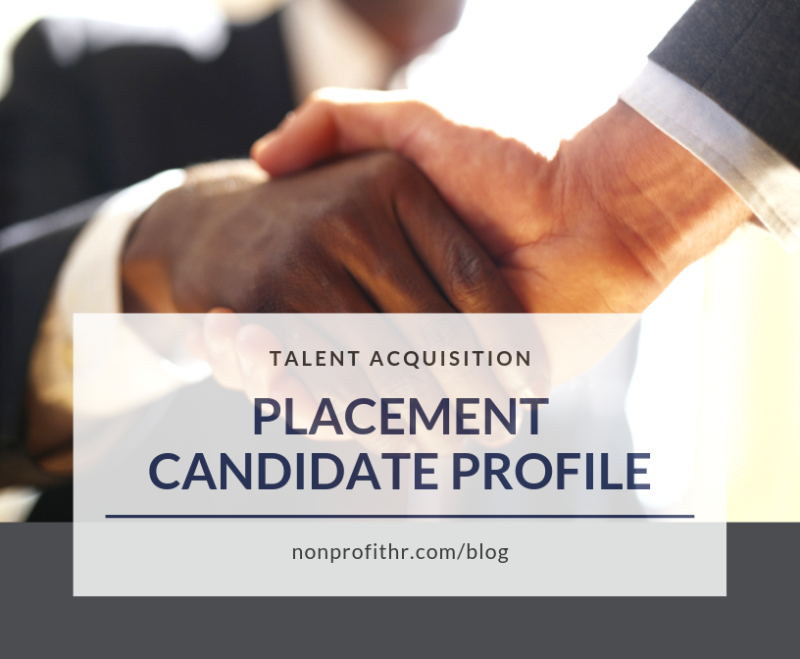WTOP: 5 ways nonprofits can…
Nonprofit HR’s Talent Acquisition team places hundreds of candidates in positions each year. This story features a recent placement that is making incredible impacts in the social sector.
 |
| Asha Pinkney Gillus Director of Humans Resources Martha’s Table |
What lead you to a career in the nonprofit sector? What skills do you think you bring to the sector?
I worked in the corporate environment for the first 10 years of my career. After a while, I noticed that there was no work-life balance and I could not keep up with the pace for the long haul. Around 2008, the social sector became more appealing because I thought it would provide more flexibility and buy me more time to be with family. I entered the sector working with Neighborworks America and dove into work responding to the housing crisis at the time. After that, I joined the National Governors Association at a time when there was a significant quest for bipartisanship. Now at Martha’s Table, food insecurity has emerged as a major challenge due to the COVID-19 pandemic. So, I am still working on buying myself more time. But, I do find that working for a mission-driven organization helps me feel a greater sense of balance. The satisfaction from seeing the immediate impact of my work and knowing what I do on a daily basis directly impacts others helps make up for the time.
In terms of the skills I bring to the sector, that would definitely be strong project management skills. Implementing well-established standard operations can often be time-consuming and a challenge, which is understandable. Some missions grow organically from a passion to solve a problem and in order to tackle these problems efficiently, missions need systems that allow them to operate efficiently.
What drew you to your current organization’s mission? What do you love about it?
I am a native Washingtonian, born and raised in the District. Martha’s Table has been around for over 40 years and I was able to see our mission’s impact since childhood. As a child, I would get fruits and vegetables from Martha’s Table after church. I also saw the impact of our early childhood programs in communities across the city. That impact lasts to this day and the CEO, Kim R. Ford, is such a dynamic leader! I greatly admire her leadership style and understand her passion. I am more selective in this stage of my career and wanted to get behind leaders that allow me to thrive as a part of the leadership team.
What do you love about the culture of your new organization?

I am also impressed by our commitment to continuous learning (more on that below).
What excites you the most about your new role?
I get to see an immediate impact, especially in the Southeast section of the city. Our office has an early childhood program on-site and each morning I have a chance to participate in circle time and read books. For me, this is an amazing way to see, and stay connected to, our impact on a daily basis.
I am also excited about the training and development program launched in April 2020. Staff members are getting degrees from associate to Ph.D. to certifications like ESL training. We all have the opportunity to do amazing things to advance ourselves. I am going back to learn Spanish to better meet the needs of families. Learning and being life-long learners is encouraged. Professional development is done on every level and this investment in talent is reflected in our budget. We recently quadrupled our continuing education budget. Also, our PD program is flexible and is breaking down barriers for going to school. For example, some staff had balances on their school account which prevented them from accessing their transcripts. Now, they have $1500 that goes toward clearing that balance and continuing their education. Some people were in tears when they learned about this benefit.

Martha’s Table has all the infrastructure in place to continue to make significant impacts in the community. I want to make sure we have a solid one that helps people perform and perform their jobs well. My role spans HR, IT, and office service so if I can do that, I have achieved my goal. I am off to a good start given the needs assessment that was done when I first started. For several weeks, I spent my time listening, not focused on changes, and looking for low-hanging fruit. I talked to staff members a lot to uncover concerns, started working toward equity around total rewards, and assessed basic things like paper forms as well as seemingly “easy” things.
What advice would you give job seekers looking for their next dream role in the sector?
Make sure you have a strong network. The sector is small, especially in the DC metro area. Your network needs to be solidified to (1) stay in the know about opportunities and (2) have people vouch for you and what you do. Also, commit to being a continuous learner. Some organizations can be late to implement best practices so if you keep learning, you can add value by helping organizations implement best practices. Finally, never be afraid to go out and try new things that will help to advance your career.
What was the most valuable part of the direct hire process? What should we keep the same?
The most valuable part was being able to connect with the subject matter experts at Nonprofit HR. I was in my role at the time for five years before looking at a new role. I received valuable feedback on my resume including better ways to market myself. I did not know how to make the best out of LinkedIn and brand myself as an HR subject matter expert. I had to invest the time to get caught up to speed. Getting that feedback and pointers on making myself stand out was critical to my success.
Also, the tool used to assess my overall fit with the role was a very important piece of the process. I believe that fit with an organization is an important thing outside of core skills. Fit for both sides is very important.
Yvonne Rivera was stellar at keeping the communication open. She kept me posted on where I was in the process every step of the way. Recruiters can go dark but that was not the case with Yvonne. She was on top of keeping me informed and engaged throughout the entire process.


























